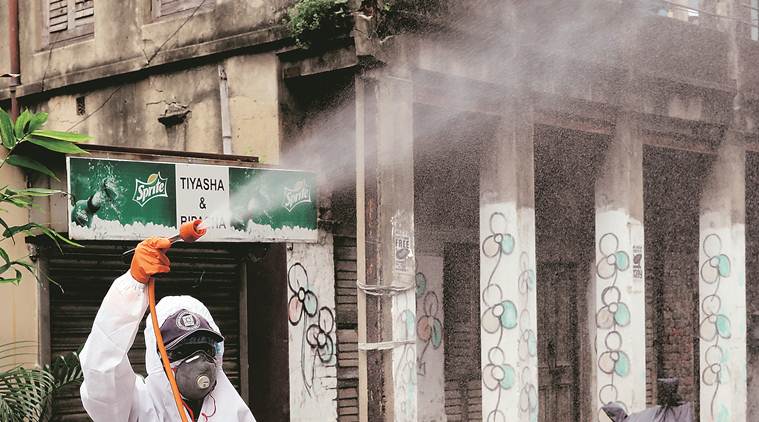AFTER its experts red-flagged several “deficiencies” in clinical management of Covid patients that need “urgent correction,” the West Bengal government has issued a series of advisories to hospitals across the state.
Issued between July 2 and June 9, these cover a sweeping range: from monitoring oxygen and using anticoagulants to intense monitoring of ICU patients and prohibiting drugs not recommended by the government.

Experts said that the Bengal experience has an echo in many other states struggling with the clinical management of the rising tide of patients.
Late last month, as reported by The Indian Express, a senior Central official had said that West Bengal, along with other states including Gujarat and Maharashtra, require “further hand-holding” in clinical management.
ExplainedTo improve patient outcome
These Central guidelines need reiteration in West Bengal and are relevant elsewhere too. Doing an ECG to measuring oxygen levels, using anti-coagulants is in line with growing evidence that Covid attacks blood vessels too.
West Bengal has reported 24,823 cases with a case fatality rate of 3.3 per cent; its seven-day compounded daily growth rate is 3.76 per cent. Almost 76 per cent of its cases are in Kolkata, Howrah, Hooghly, North 24 Parganas and South 24 Parganas districts.
The state’s advisories to hospitals relate to nine specific directions.
* During admission, conduct ECG to check heart abnormalities and ABG (arterial Blood Gas) to measure oxygen levels in blood; “monitor” oxygen saturation levels and blood pressure, these should be “maintained properly;” Visiting consultant should sign on documents related to daily clinical progression of vitals, respiratory rate, saturation, and blood sugar levels.
Story continues below this ad
* Steroids and anticoagulants “as per protocol,” the dose adjusted as per co-morbidity. The Central guidelines which recommend anticoagulation as early support therapy in severe cases makes exceptions in cases of active bleeding and end-stage renal disease.
* Practise “prone awake (lying flat chest down) ventilation” in ICUs to prevent ventilator-induced lung injury “before putting the patients on conventional mechanical ventilation”.
* Judicious use of antibiotics; “immunosuppressive drugs which is not recommended in government guidelines should not be given on an experimental basis.”
* Ten additional guidelines related to general management which include “separate isolation wards” for SARI or suspected patients; not admitting them in general wards; pasting “ventilation strategy and guidelines prominently in the wards and ICU.”
Story continues below this ad
* Super-specialty teams should be made available, especially nephrology and pulmonology for appropriate advice and intense monitoring of patients.
The advisories underline the establishment of triage, often the emergency department of hospitals, the patient’s first point of contact with health professionals.
With multiple cases being reported of deterioration of patients during transportation, the advisory states: “During the transferring of the patients, a case summary must be attached and during transport of a sick patient, stabilisation of vitals must be done. Appropriate oxygen support is to be provided during transportation.”

 A KMC worker sprays disinfectant in a containment zone at Ultadanga in Kolkata. (Express photo by Partha Paul)
A KMC worker sprays disinfectant in a containment zone at Ultadanga in Kolkata. (Express photo by Partha Paul)






